

——Shop, town and people: New relationships connected by coffee——
“Delicious coffee is a wonderful thing to drink”. It’s a simple phrase but it’s like an aroma of carefully brewed coffee floating through the air. Yugé Roaster was established in 2013 in Nishinomiya City, Hyogo Prefecture. And as of 2021, it has three shops in the city offering specialty coffee. We interviewed the owner, Yasuhiro Okamoto, who is committed to contributing to the community through coffee while blending into the town.
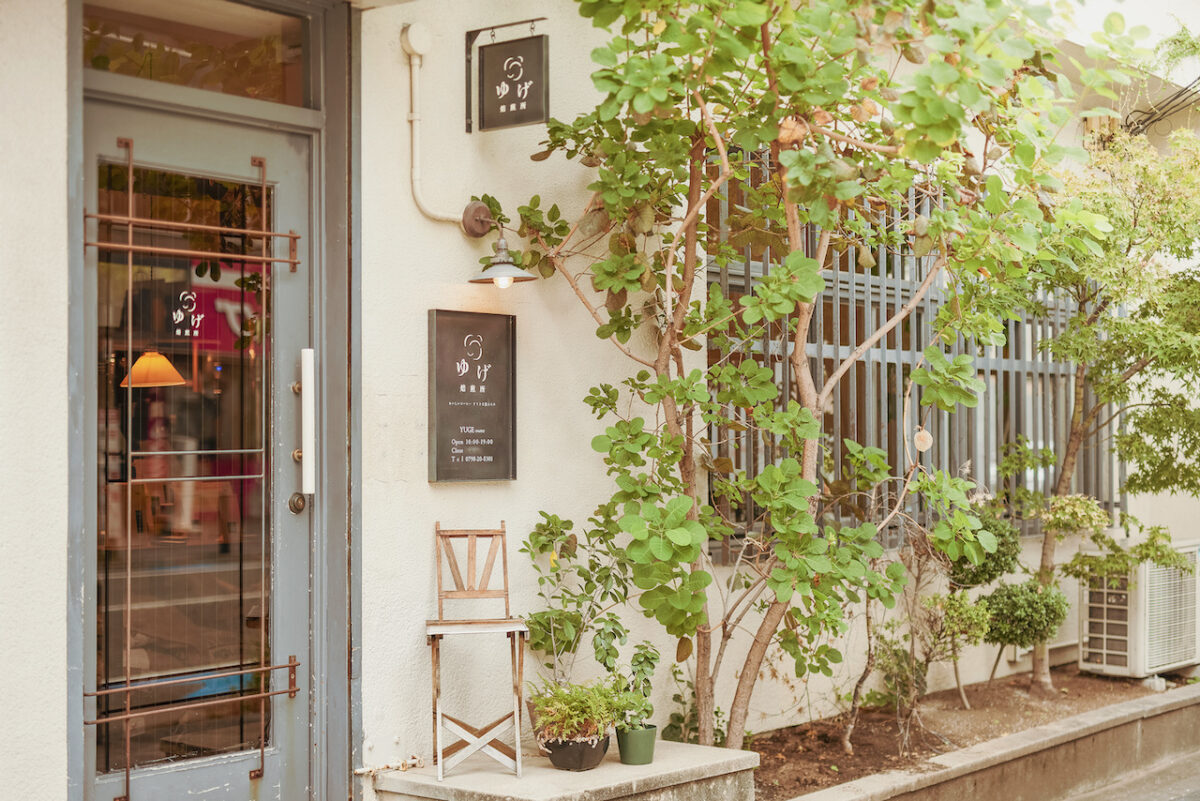
How a young man who couldn’t drink coffee opened a coffee shop
In the busy streets near Nishinomiya Station, you can find a heavy door peeking out from a lush greenery.
“When we opened the main shop, there were no coffee shops around and I think people felt like ‘something strange had come in’. But people around supported us and we made it this far.
A town is made up of neighbors of this store, and their neighbors and so on. When you think about it, I think the first step to contributing to the community is to make the people living in the town think ‘they’re glad this shop was made here’. That’s why we have been actively participating in things that bring us closer to the locals such as picking up trash in the community, holding sports events and accepting junior high school students for work experience.
Now we have the convenience store FamilyMart right in front of us and they also sell our products there so that customers can buy them even after our shop closes. I think the convenience store business has an image of being the opposite of a coffee shop. But in fact, this may not be the case. I feel as if we are all friends connected by the axis of the town.”
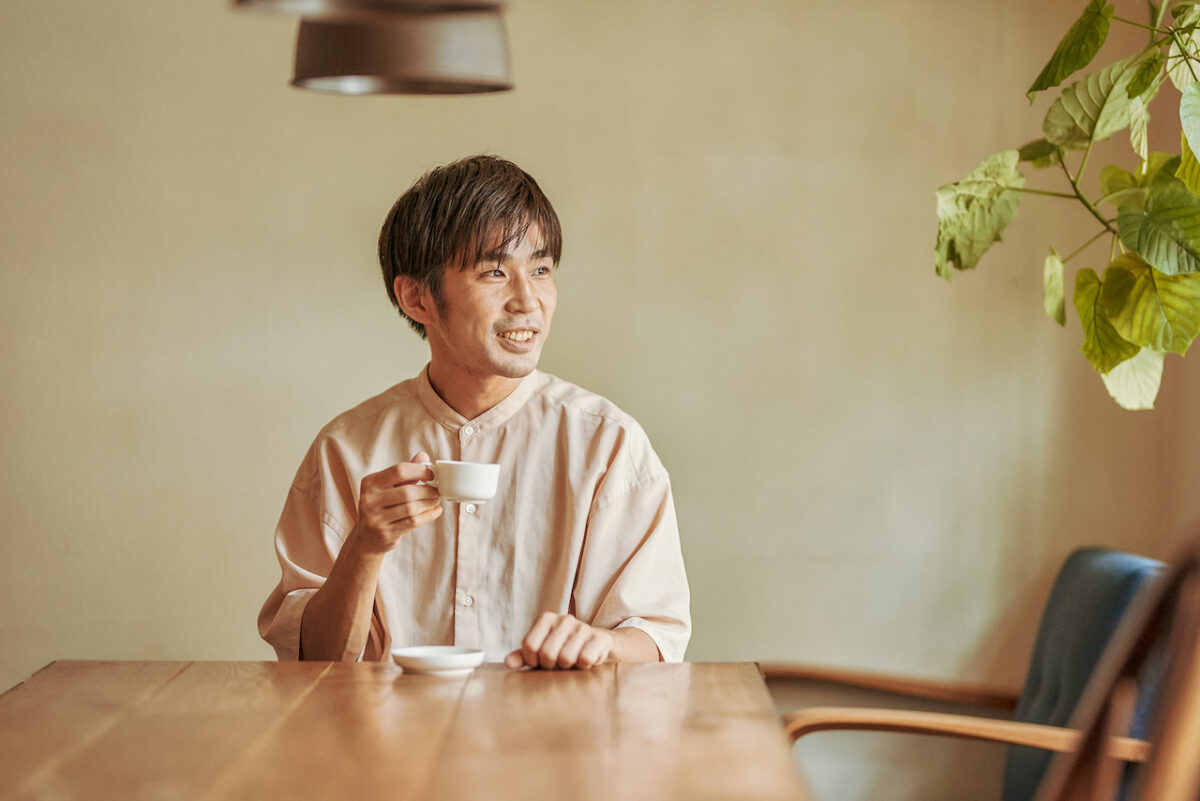
When I asked Yasuhiro about his first encounter with coffee, he began to talk about his unexpected origins with a carefree smile.
“I actually couldn’t drink coffee! But since I was in high school, I dreamed of owning my own shop, so my hobby was visiting cafes. I would say things like ‘I went to that shop that is popular for its latte art’ and so on. Though I mostly ordered juice and cake.”
The first step toward his dream was at Starbucks through a part-time job.
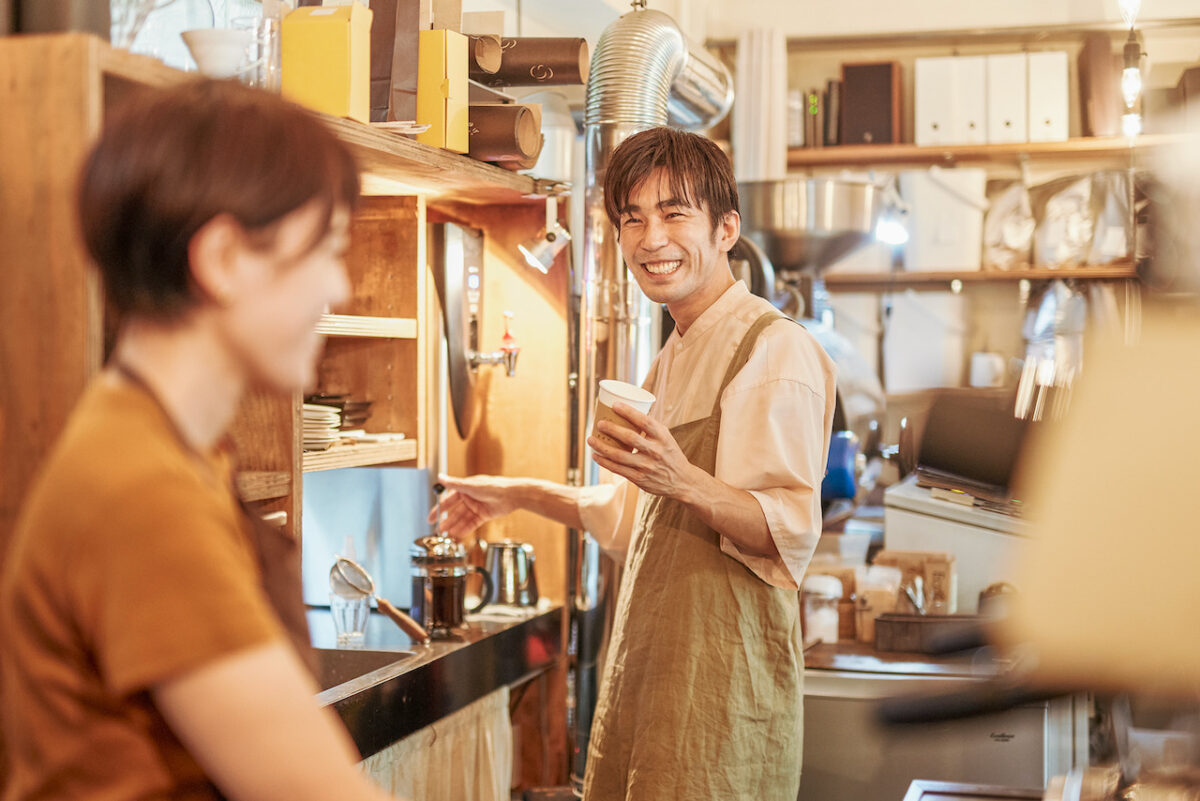
“The first thing that struck me when I walked into the shop was the way the staff and customers were happily talking to each other. When I saw them, I thought ‘I don’t know how coffee tastes but I don’t want to cause trouble because of it’.”
Even if he couldn’t drink, he thought he would make up for it with his knowledge. So Yasuhiro worked hard to read the manuals and gradually began to receive praise from customers. He studied so hard that when he took the Starbucks in-house exam, he was ranked third even as a newcomer in his area.
“When I received praise from everyone, I realized ‘I really need to be able to drink this’. That’s when I started tasting coffee little by little and deepened my understanding of the flavor of coffee.

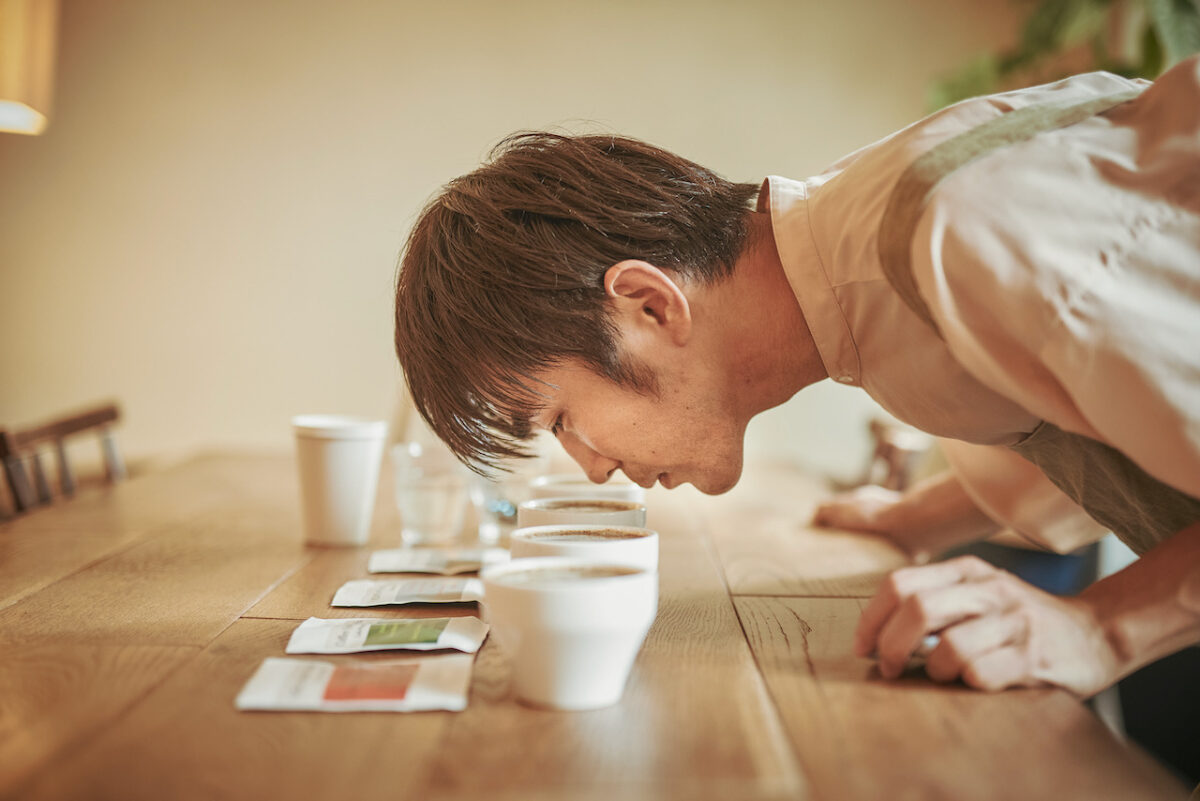
After being able to taste coffee, Yasuhiro’s next challenge was specialty coffee. He first encountered specialty coffee at a shop in Kyoto and learned a lot from the owner, including about the coffee origin and cupping skills.
“I adore Starbucks’ coffee but there are some elements that have to be cut down in order to provide a consistent taste across the world. I was thrilled when I sensed flavors and tastes from specialty coffees that I had not been able to experience before.”
By actually tasting the coffee, Yasuhiro felt as if he was reconfirming what he had learned about coffee. He became completely fascinated by specialty coffee. He also began to see the value of contributing to society through coffee.
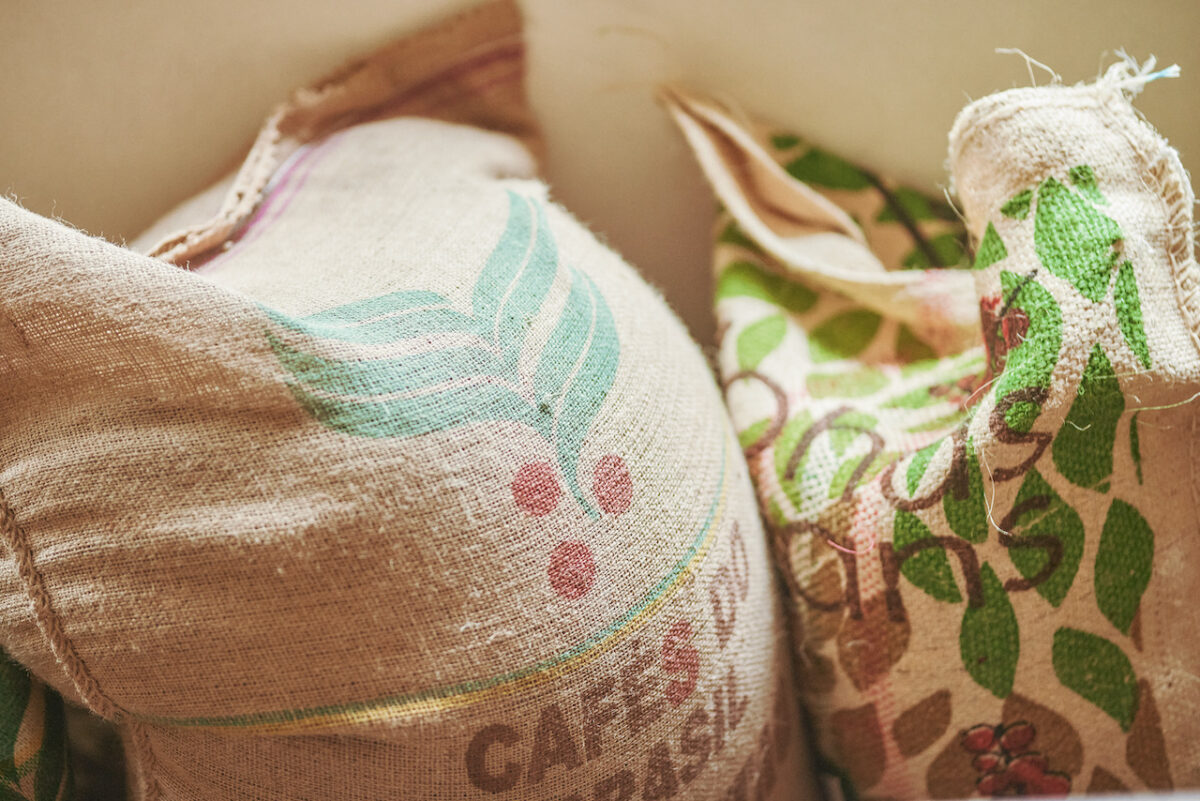
At that time, he was invited by the owner to visit the coffee origin and the instructor of the UCC Academy who was accompanying him had some words for him.
“The people here have lived in a different culture and religion from us and some of them have experienced civil wars. They can finally make a living, but only when all of their produce is sold.
Specialty coffee is highly advertised, but it’s the people who buy the beans in each zone that support the producers’ livelihood and the industry itself.
It’s not that specialty coffee is good and others are bad. I’d be happy if we could work together to create a sense of value that will boost the industry.”
For Yasuhiro, it was a moment when he realized how naive his thinking had been and the goal he should be aiming for fell into place.
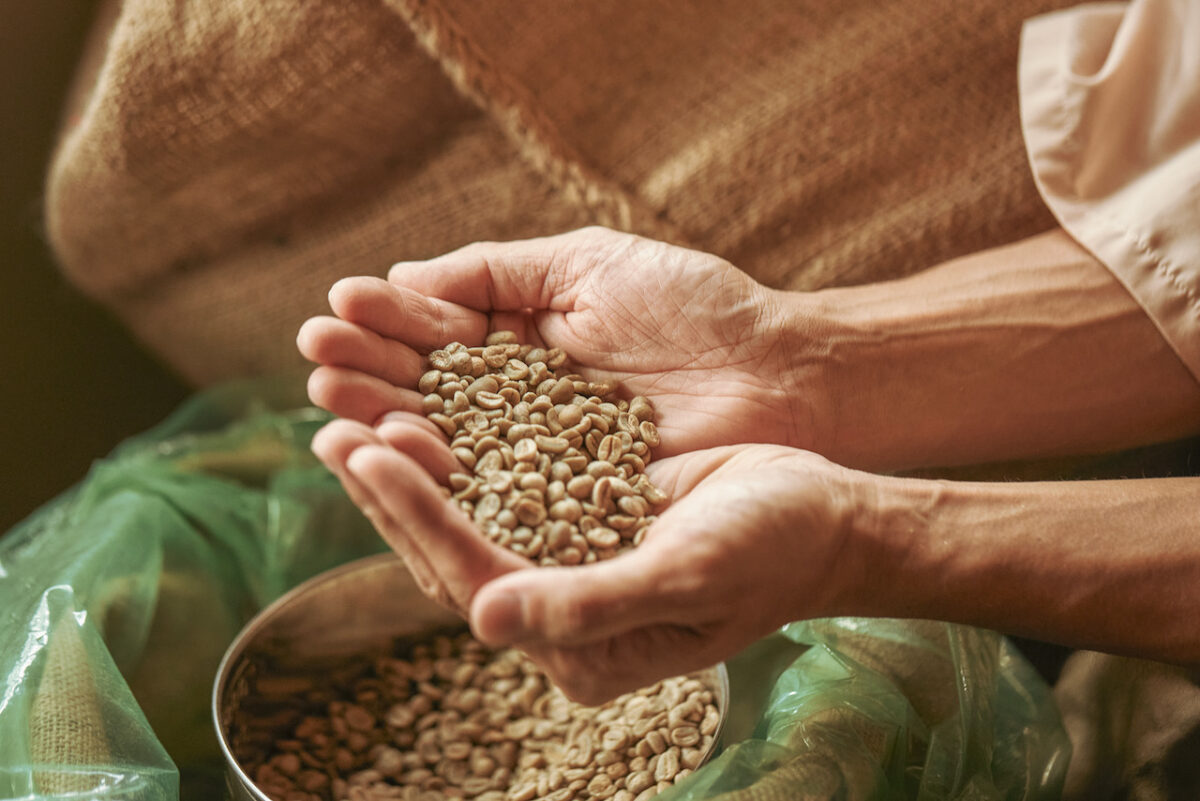
“The more I learned about coffee, the more ambitious I became. I was thinking ‘I’m going to start my own roastery, open multiple shops with specialty coffee as my signature and contribute to the countries that produce it!’. However, after listening to the instructor’s words, I realized that I didn’t understand anything. I only had a self-satisfied sense of justice.
This has changed my way of thinking. I realized that I should be doing something more local. I think I should create a coffee shop that can make people happy and contribute to the local community.”

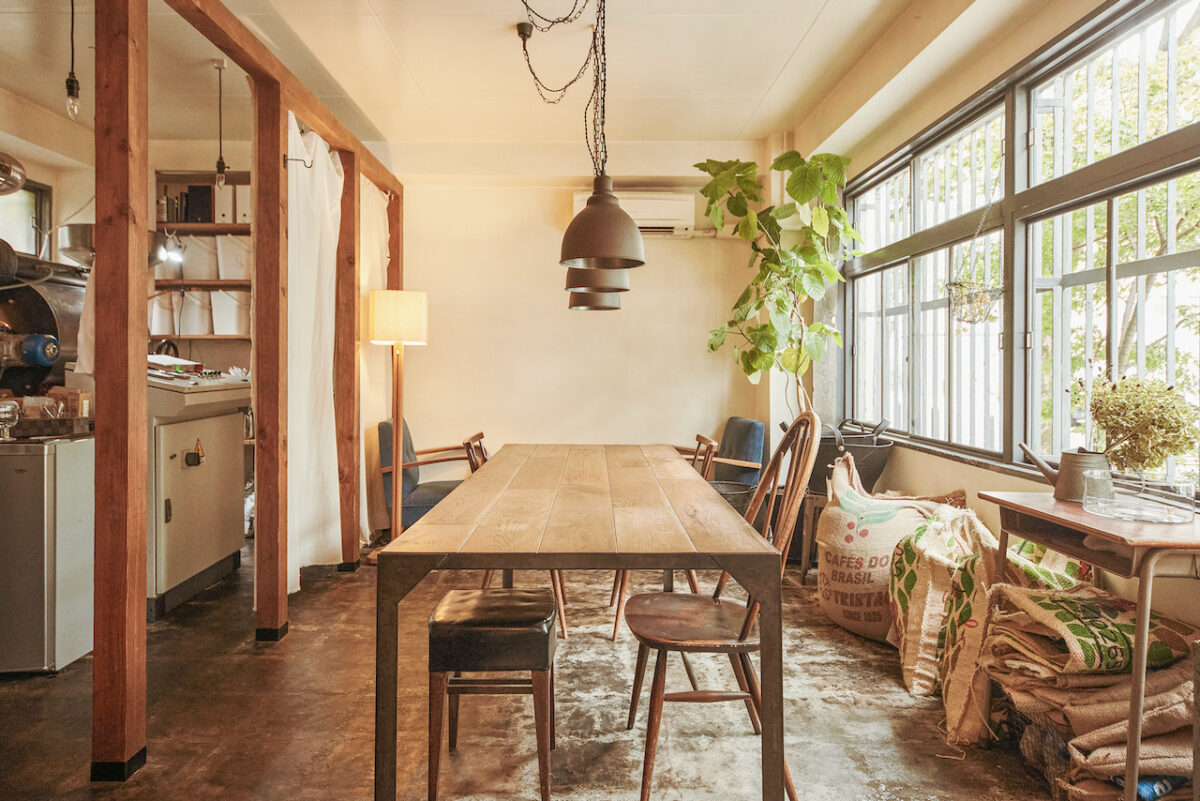
To create a new value other shops don’t offer
Starbucks, which continues to build its fans throughout the world, has its own well-thought-out philosophy that covers everything from roasting to customer service to the brand’s worldview. Among these, Yasuhiro is particularly fond of how it places their shops in the society.
The concept of Starbucks shops is “a space where you can be alone and relax that is neither at home nor at work”. This is what is called a “third place”.
If he was going to open a shop someday, he would need to create a new sense of value that is different from Starbucks’. Yasuhiro, who was keenly aware of this, encounters an experience that gives him inspiration.
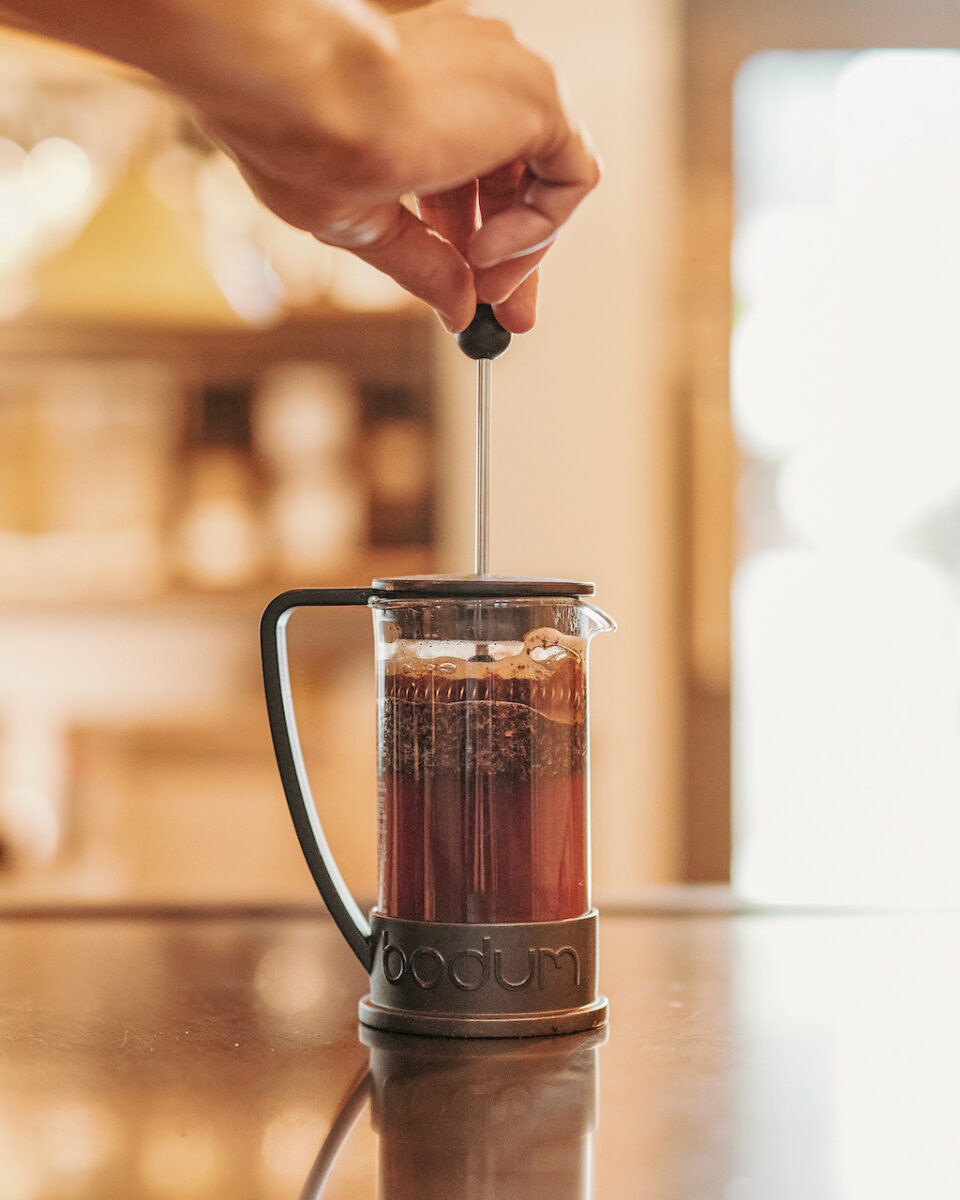
One time, the shop ran a campaign to hand out samples of coffee at the front of the shop during the morning commute. However, not many people would stop and drink the coffee in their busy hours. When all the staff members were about to lose their confidence, one of them said “let’s change the purpose of the tasting!”.
“I used to give out coffees to attract customers but come to think of it, I should be more grateful to be able to run my shop here. I thought it would be a good idea to make it a goal to return the favor to the local people.
There may be people who haven’t said hello to anyone for the whole morning or people who haven’t been greeted by anyone from the time they leave their home until they arrive at the office. If that’s the case, even just smiling and saying ‘good morning’ to people might make them think ‘I’m glad this shop exists’. That’s how we changed the purpose, to bring as many pleasant experiences to people walking by the shop.”
Once the purpose was changed, the way the staff talked to people became more cheerful and sales increased.
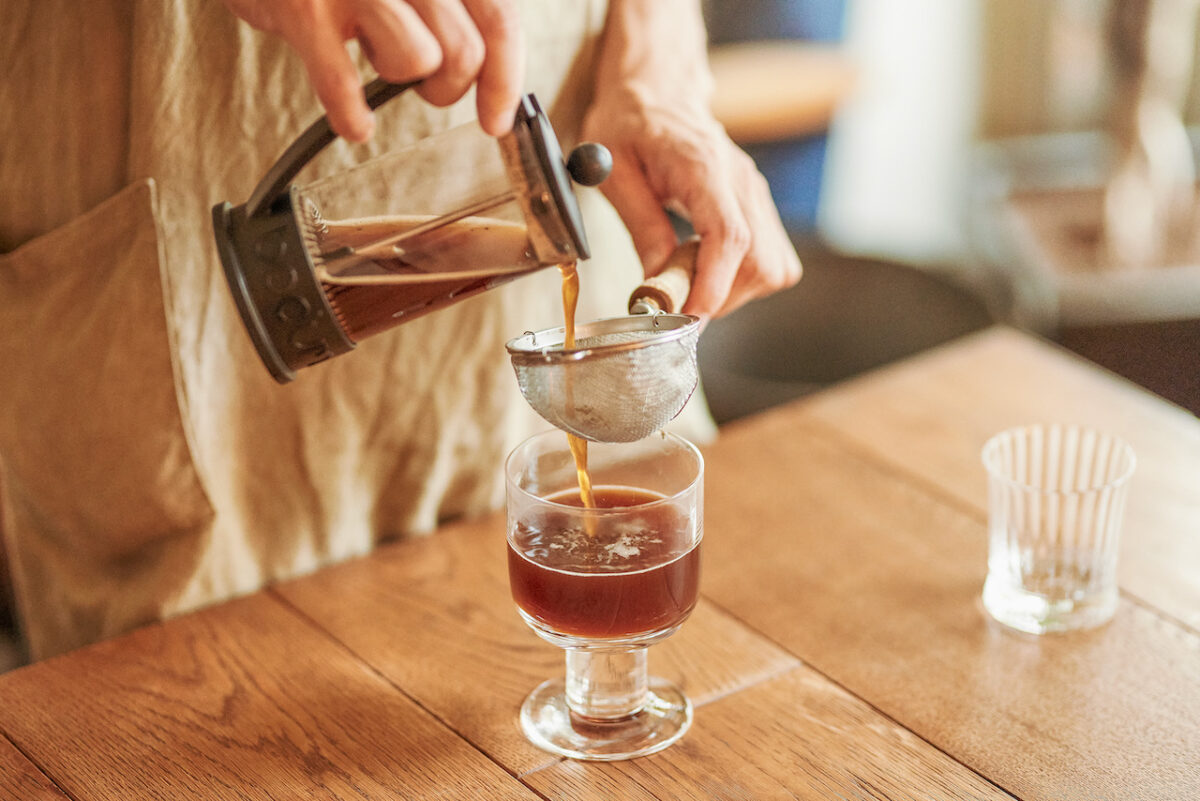
“The space we were greeting to people was not a home, a workplace nor the ‘third place’, but a place that belongs to nowhere. It is a place of disorder and instability.
In our town, there are police and the peace is being kept. However, no one cares about how the people feel or how they spend their time in that space. I thought that if I could make a ‘space that connects the shop and the house’ that is peaceful and rich, it would become a new value.”

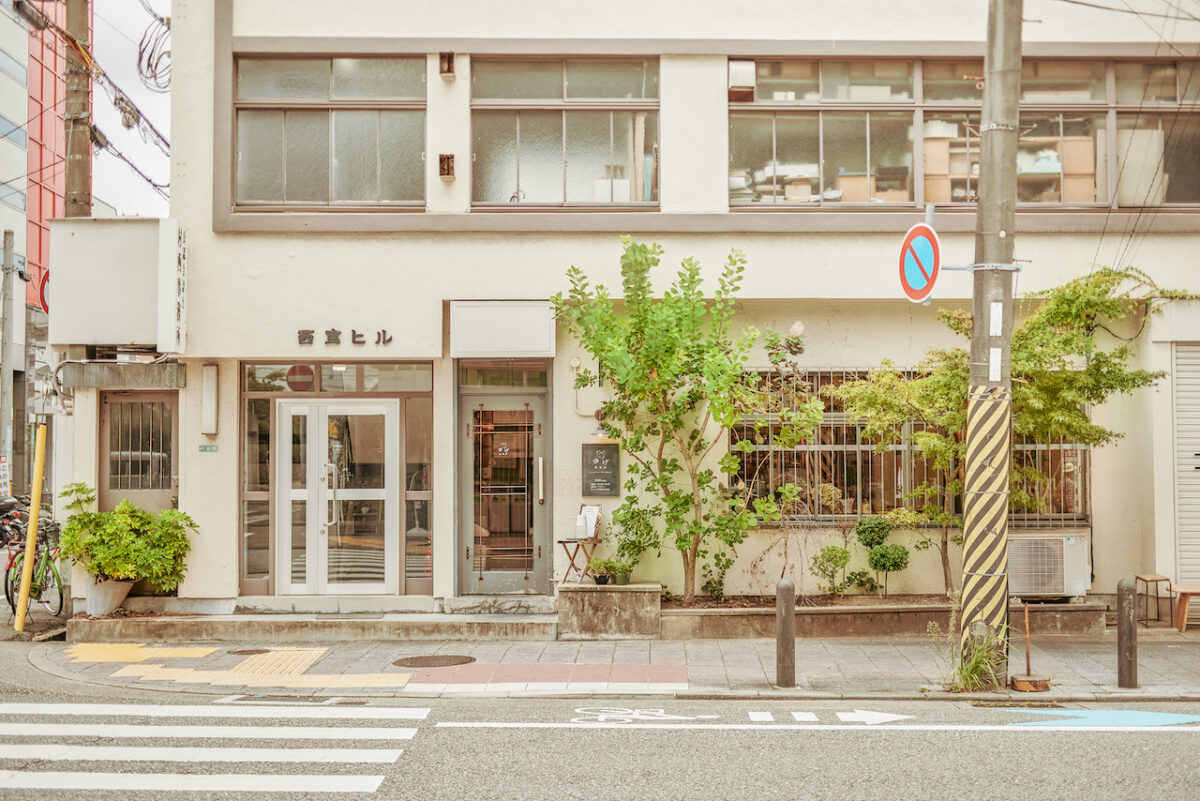
Encompassing the “living” aspect of the people in town
“Space that connects the shop and the house” Yasuhiro refers to is not a physical space, but something invisible like the time that flows in between and the parts of life.
“For example, the excitement you feel before going to the shop or the comfort you feel after leaving the shop and the lingering feeling until you get home. I thought such a feeling would enrich not only the space connecting the shop and home for the person but also the community.”
Compared to the grand vision of “contributing to the country of coffee origin with specialty coffee” that he once had, “space between the shop and the house” is much closer to himself. With the vision of contributing to the community starting from the space between shop and home, Yugé Roaster was born.
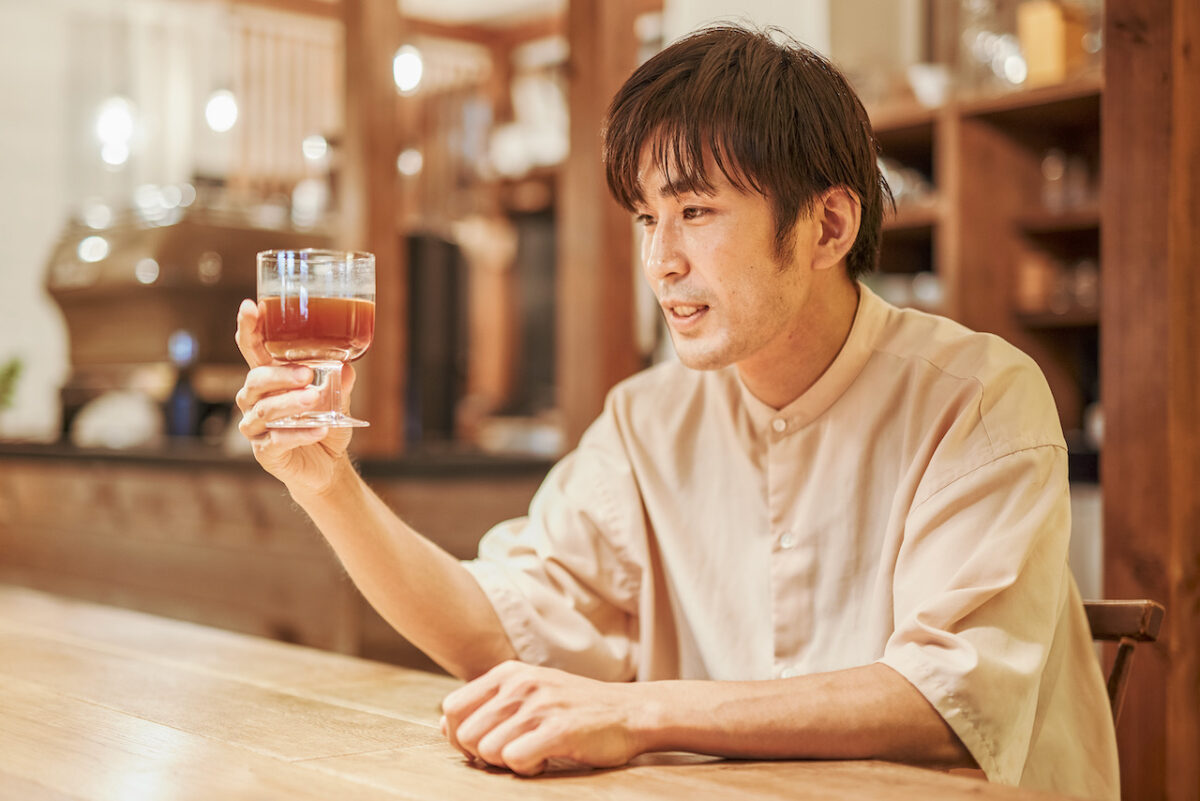
Perhaps it is because he has been actively participating in local activities, he has also grown closer to people of the town. With the support of the local community, Yugé Roaster has steadily become a place where people from the town gather and has grown into a shop that is supported by men and women of all ages.
“I’ve seen couples become husbands and wives, parents and their children who used to cry all the time grow up to drink caffè latte. I feel that I am connected to many ongoing lives.
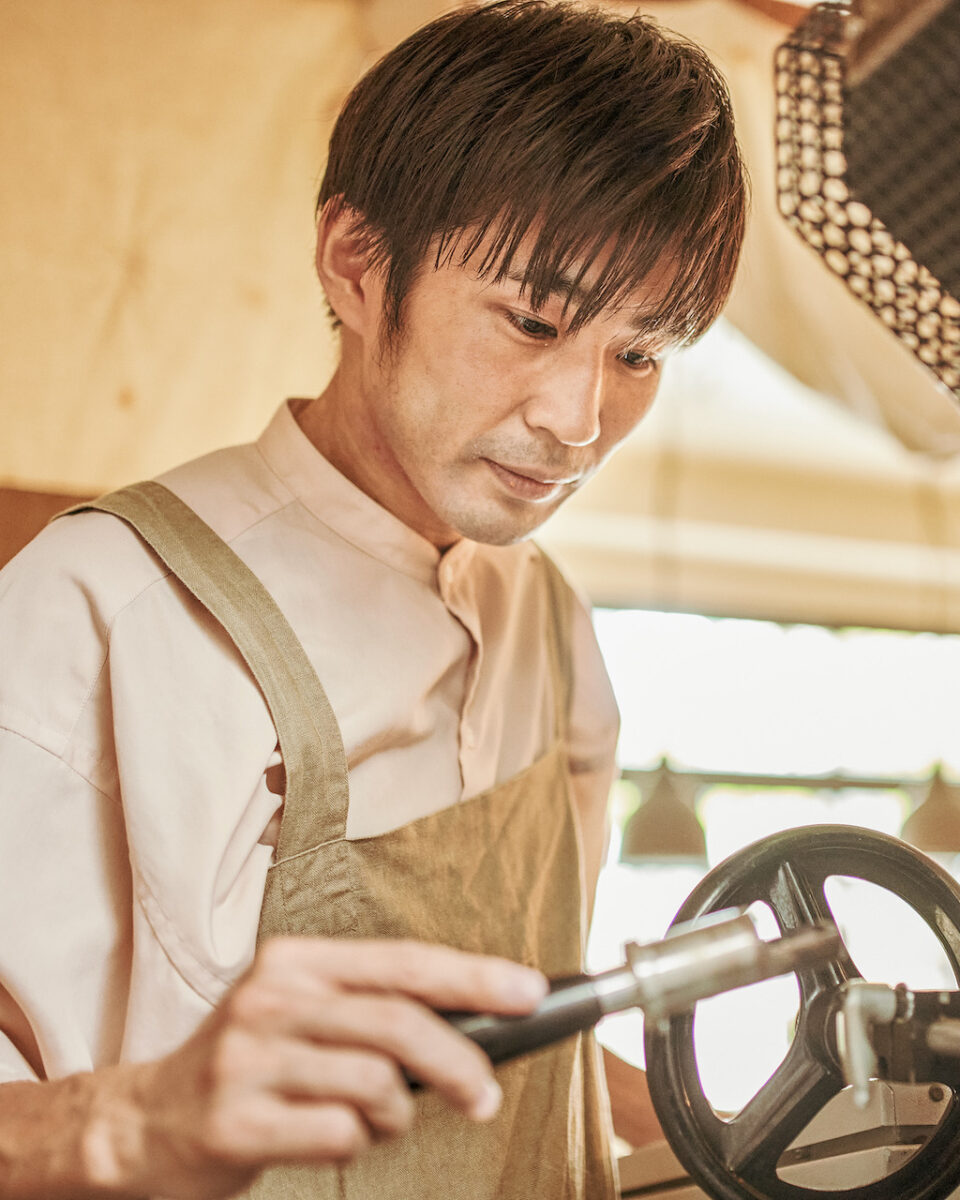
The shop is visited by young people who want to be photographed and schoolchildren who are trying to be a little bit precocious than others, but the most common episodes that show the “space that connects the shop and home” are those related to older customers.
“There are many elderly people living alone today. And even though local social welfare workers are making rounds and calling out to them, many of them do not respond, saying ‘I am still fine’.
At times like this, I think that we, as an extension of their daily lives, can be of help. Even though we are just a staff of the shop, we can be like a family through our daily communication.
We can say ‘you’ve been coming to the shop less often lately, are you okay?’. If they suddenly stop coming, we can cooperate with social welfare workers to check on the safety of the elderly as soon as possible.
Standing in this shop, we really have many of such episodes. There are grandfathers who have no family and grandmothers who have lost their husbands. I believe that there is a sense of peace and tranquility that comes from us becoming a ‘family’ with them.”

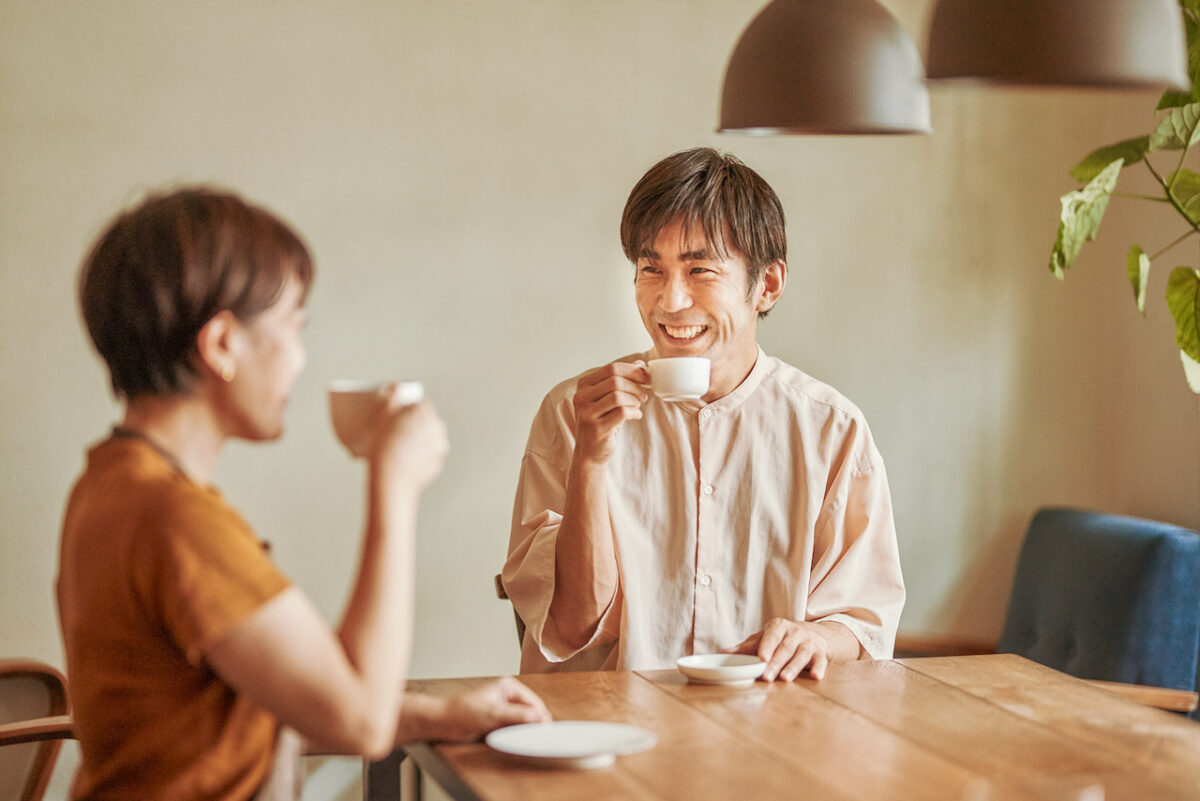
Yugé Roaster created by locals and staff
There are currently three Yugé Roaster in Nishinomiya that cater to the needs of each and every person in the town. As we hear about his philosophy emphasizing the importance of “people-to-people dialogue”, it seems like he has high expectations for staff members.
“I don’t want to pry into customers’ minds and I don’t want the staff to do it. We aim to serve our customers at the best possible distance, letting the flow of nature take its course and sensing when the customer wants to talk. Each staff member naturally has a different style. But I think that’s okay.
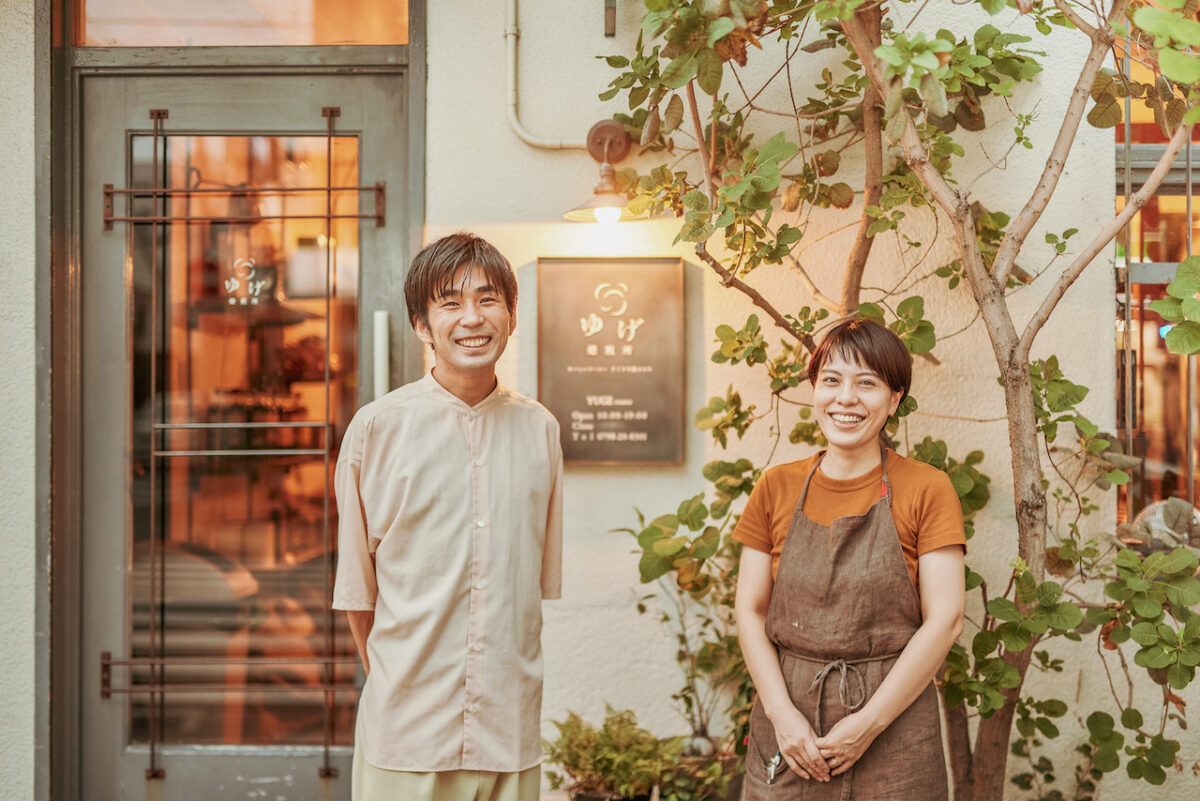
The word yugé (meaning vapor in japanese) in the name of the coffee shop expresses the idea of “not being able to do it alone”. Because the shape of vapor can only be seen when individual grains of steam come together.
“Yugé Roaster is made by people of the town and the staff, and I hope it will take on a different form from time to time. This shop is also a place that has been nurtured by the people here. That’s why we want to be a part of the town.
Rules and particulars can sometimes create an invisible wall between the customer and the shop. I want to maintain a balance between tension and relaxation in our interactions with people and in the atmosphere of the shop.”
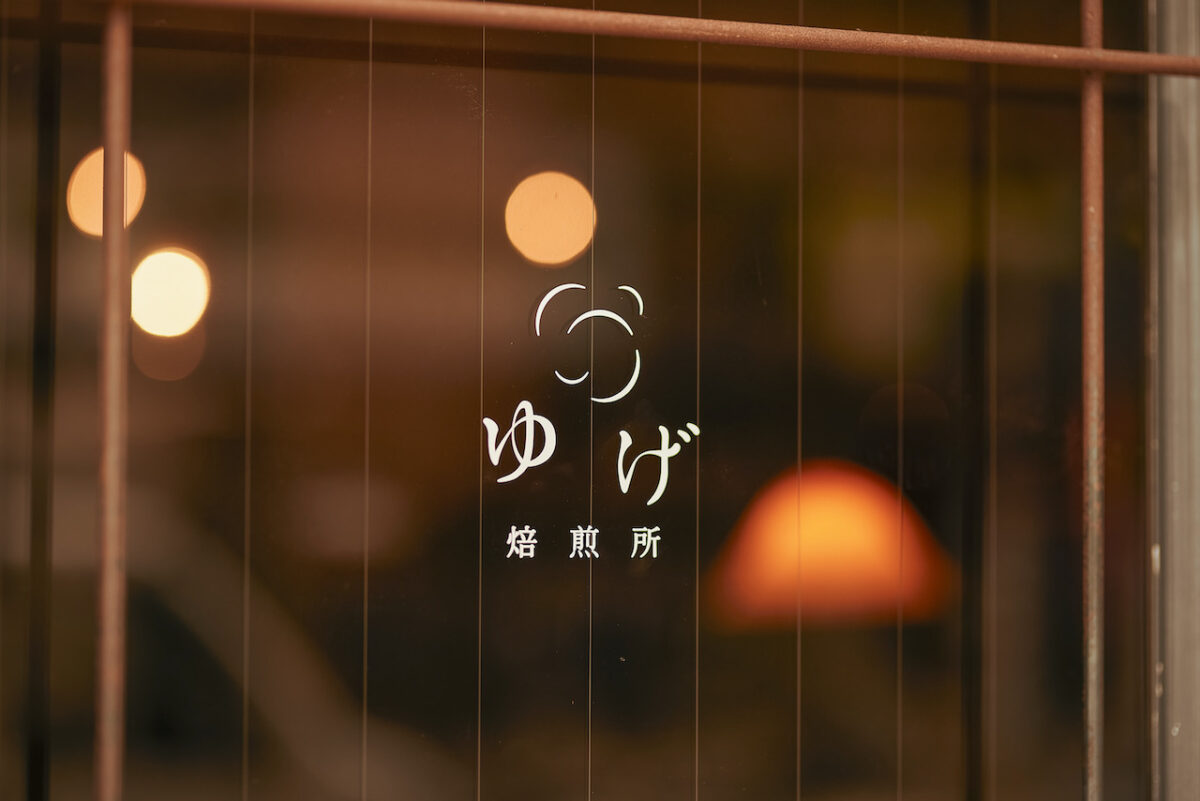
Yugé Roaster, for instance, does not have a specific closing time. Formally, the shop closes at 7:00 p.m. but if the lights are on, after that time, customers can still buy coffee. This is a system that they have adopted so that people can stop by after work.
“On the other hand, there are elements that make it a little difficult to enter the shop. For example, the sign is made modestly and the door is a little heavy. I hope that people who want to come here will open the door to gather and have experiences that will make them want to come back.”
Yugé (vapor) warmly envelops the entire town and the people of Nishinomiya, and that warm embrace is what Yugé Roaster aims to contribute to the community.
Originally written in Japanese by Chiho Maezawa
Edited by Tatsuya Nakamichi
Photo by Kenichi Aikawa
MY FAVORITE COFFEE人生を豊かにする「私の一杯」
A cup of hot coffee in the long autumn nights is a meaningful cup for me. When I was working at Starbucks, they released a coffee called Anniversary Blend every fall. The aroma of the coffee and the autumn air brings back memories of those days and I feel like I'm going back to the starting point of my life.

Yuge Roaster
Yuge Roaster
Yuge Roaster
Nishinomiyakitaguchi
- [営業時間]
- 10:00-19:00